Micronutrients
Health benefits of Micronutrients:
Micronutrients are nutrients that whilst being vital for life are only required in very small amounts. Micronutrients are split into the categories of vitamins, minerals and phytochemicals (plant chemicals)
The Worlds Science
What are micronutrients?
Micronutrients are nutrients that are vital for life but unlike macronutrients they are only required in very small amounts.
Vitamins
What are vitamins?
Vitamins are organic compounds required by humans in small amounts from the diet.
Why do they matter to me?
The term vitamin is derived from the words vital and amine as vitamins are required for life.
Vitamins are essential for the normal growth and development of a multicellular organism. Once growth and development are completed, vitamins remain essential micronutrients for the healthy maintenance of the cells, tissues, and organs that make us up.
Did you know?
Vitamins are classified as either water-soluble or fat-soluble.
In humans there are 15 vitamins:
The value of eating a certain food to maintain health was recognised long before vitamins were identified.
Famously in 1747, the Scottish surgeon James Lind discovered that citrus foods cured scurvy, a particularly deadly disease in which collagen is not properly formed, causing poor wound healing, bleeding of the gums, severe pain, and death.
In 1753, Lind published his Treatise on the Scurvy, which recommended using lemons and limes to not only cure but prevent scurvy, which was much later adopted by the British Royal Navy.
Later it was discovered that vitamin C was the vital micronutrient that ended the scourge of scurvy.
During the late 19th and early 20th centuries, the use of deprivation studies allowed scientists to isolate and identify a number of vitamins.
Lipid from fish oil was used to cure rickets in rats, and the fat-soluble nutrient was called "antirachitic A". Thus, the first "vitamin" bioactivity ever isolated, which cured rickets, was initially called "vitamin A"; however, the bioactivity of this compound is now called vitamin D.
Minerals
What are minerals?
Minerals are elements that originate in the Earth and cannot be made by living organisms. Plants obtain minerals from the soil, and most of the minerals in our diets come directly from plants or indirectly from animal sources.
Why do they matter to me?
Minerals play an essential role in the communication between our cells, for example calcium acts as a messenger between the cells of our brain.
Minerals are predominantly used by the body to: build strong bones and teeth, control body fluids inside and outside cells, regulate our heartbeat and turn the food we eat into energy.
They also maintain the internal balance of our bodies so they we remain in a stable and healthy state when external conditions around us change.
Some minerals such as iodine are described as trace elements as we need them in such small quantities however they are still vital to preserve our lives.
How should I get them?
Dieticians recommend that dietary minerals are best supplied by eating specific foods rich with the minerals of interest.
Phytochemicals
What are phytochemicals?
Phytochemicals are chemicals produced by plants. These are the chemicals that plants use to defend themselves against disease.
For example, plants protect themselves against bacteria, fungi, viruses and cell damage with phytosterols, carotenoids, flavonoids, isothiocyanates and similar chemicals. Research has shown that these same chemicals can prove equally beneficial to the human body, helping in areas like cancer, heart disease and diabetes prevention.
Can phytochemicals protect against cancer?
The National Cancer Institute has determined in laboratory studies that more than 1,000 different phytochemicals possess cancer-preventive activity.
It is estimated that there could be more than 100 different phytochemicals in just a single serving of vegetables. Numerous cell-culture and animal model studies have been conducted to evaluate the ability of specific edible plants to prevent cancer.
As early as 1980, the NCI’s Chemoprevention Programme began evaluating phytochemicals for safety, efficacy and applicability for cancer prevention.
Michael Sporn coined the term ‘chemoprevention’ in the mid 1970s to describe the strategy of blocking or slowing the onset of tumours with relatively nontoxic chemical substances.
The NCI has more than 400 potential agents under investigation and is sponsoring more than 65 Phase I, Phase II and Phase III chemoprevention trials. These involve various substances or their mixtures, many of which are foodborne phytochemicals.
Are phytochemicals antioxidants?
Phytochemicals are often accredited as being antioxidants, however their antioxidant (cleansing) activity is far less powerful than their positive influence on cell signalling. Healthy cell signalling is vital in the prevention of the distortions that lead to cancer.
Other research
Studies have consistently shown that diets high in fruit and vegetables reduce the risk of chronic disease, however the complex interactions between recognised and unidentified phytochemicals is not yet fully understood.
Evidence that very high doses in the form of supplements of individual phytochemicals are beneficial is inconsistent and weak adding to the argument to eat naturally to maximise the as yet not fully understood interactions between phytochemicals.
How we group phytochemicals on checkyourfood.com
Phytochemicals on checkyourfood.com have been grouped into flavonoids, isoflavones, phytosterols, lycopene and lutein and zeaxanthin.
We have also highlighted some specific phytochemicals from within these groups such as quercetin as studies have been conducted into them specifically.
Micronutrients are nutrients that are vital for life but unlike macronutrients they are only required in very small amounts.
Vitamins
What are vitamins?
Vitamins are organic compounds required by humans in small amounts from the diet.
Why do they matter to me?
The term vitamin is derived from the words vital and amine as vitamins are required for life.
Vitamins are essential for the normal growth and development of a multicellular organism. Once growth and development are completed, vitamins remain essential micronutrients for the healthy maintenance of the cells, tissues, and organs that make us up.
Did you know?
Vitamins are classified as either water-soluble or fat-soluble.
In humans there are 15 vitamins:
- 5 fat-soluble (A, D, E, and K1, K2) - You should eat these with some fat
- 10 water-soluble (9 B vitamins and vitamin C) – cook these with as little water as possible as the goodness leeches out into the water
The value of eating a certain food to maintain health was recognised long before vitamins were identified.
Famously in 1747, the Scottish surgeon James Lind discovered that citrus foods cured scurvy, a particularly deadly disease in which collagen is not properly formed, causing poor wound healing, bleeding of the gums, severe pain, and death.
In 1753, Lind published his Treatise on the Scurvy, which recommended using lemons and limes to not only cure but prevent scurvy, which was much later adopted by the British Royal Navy.
Later it was discovered that vitamin C was the vital micronutrient that ended the scourge of scurvy.
During the late 19th and early 20th centuries, the use of deprivation studies allowed scientists to isolate and identify a number of vitamins.
Lipid from fish oil was used to cure rickets in rats, and the fat-soluble nutrient was called "antirachitic A". Thus, the first "vitamin" bioactivity ever isolated, which cured rickets, was initially called "vitamin A"; however, the bioactivity of this compound is now called vitamin D.
Minerals
What are minerals?
Minerals are elements that originate in the Earth and cannot be made by living organisms. Plants obtain minerals from the soil, and most of the minerals in our diets come directly from plants or indirectly from animal sources.
Why do they matter to me?
Minerals play an essential role in the communication between our cells, for example calcium acts as a messenger between the cells of our brain.
Minerals are predominantly used by the body to: build strong bones and teeth, control body fluids inside and outside cells, regulate our heartbeat and turn the food we eat into energy.
They also maintain the internal balance of our bodies so they we remain in a stable and healthy state when external conditions around us change.
Some minerals such as iodine are described as trace elements as we need them in such small quantities however they are still vital to preserve our lives.
How should I get them?
Dieticians recommend that dietary minerals are best supplied by eating specific foods rich with the minerals of interest.
Phytochemicals
What are phytochemicals?
Phytochemicals are chemicals produced by plants. These are the chemicals that plants use to defend themselves against disease.
For example, plants protect themselves against bacteria, fungi, viruses and cell damage with phytosterols, carotenoids, flavonoids, isothiocyanates and similar chemicals. Research has shown that these same chemicals can prove equally beneficial to the human body, helping in areas like cancer, heart disease and diabetes prevention.
Can phytochemicals protect against cancer?
The National Cancer Institute has determined in laboratory studies that more than 1,000 different phytochemicals possess cancer-preventive activity.
It is estimated that there could be more than 100 different phytochemicals in just a single serving of vegetables. Numerous cell-culture and animal model studies have been conducted to evaluate the ability of specific edible plants to prevent cancer.
As early as 1980, the NCI’s Chemoprevention Programme began evaluating phytochemicals for safety, efficacy and applicability for cancer prevention.
Michael Sporn coined the term ‘chemoprevention’ in the mid 1970s to describe the strategy of blocking or slowing the onset of tumours with relatively nontoxic chemical substances.
The NCI has more than 400 potential agents under investigation and is sponsoring more than 65 Phase I, Phase II and Phase III chemoprevention trials. These involve various substances or their mixtures, many of which are foodborne phytochemicals.
Are phytochemicals antioxidants?
Phytochemicals are often accredited as being antioxidants, however their antioxidant (cleansing) activity is far less powerful than their positive influence on cell signalling. Healthy cell signalling is vital in the prevention of the distortions that lead to cancer.
Other research
Studies have consistently shown that diets high in fruit and vegetables reduce the risk of chronic disease, however the complex interactions between recognised and unidentified phytochemicals is not yet fully understood.
Evidence that very high doses in the form of supplements of individual phytochemicals are beneficial is inconsistent and weak adding to the argument to eat naturally to maximise the as yet not fully understood interactions between phytochemicals.
How we group phytochemicals on checkyourfood.com
Phytochemicals on checkyourfood.com have been grouped into flavonoids, isoflavones, phytosterols, lycopene and lutein and zeaxanthin.
We have also highlighted some specific phytochemicals from within these groups such as quercetin as studies have been conducted into them specifically.
Review date: 2/9/2022
Next review date: 2/9/2023
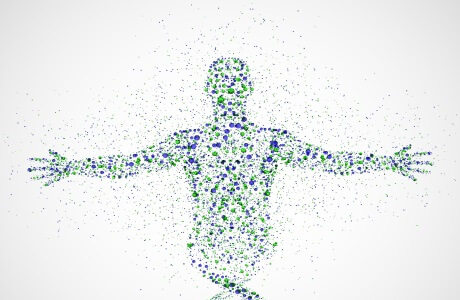
291
445
https://www.checkyourfood.com/content/blob/Micronutrients/top-foods-for-Micronutrients.jpg

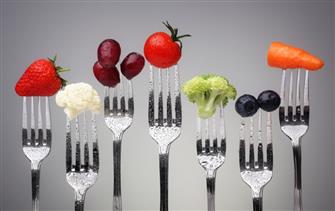 About nutrients
About nutrients
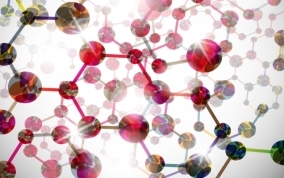 All nutrients
All nutrients
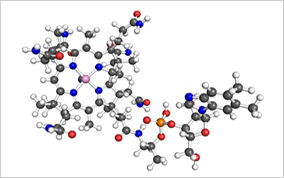 vitamins
vitamins
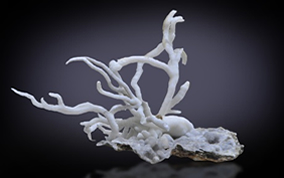 minerals
minerals
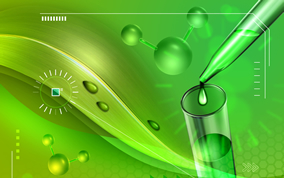 phytochemicals
phytochemicals
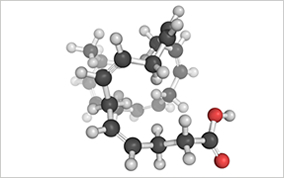 fatty acids
fatty acids
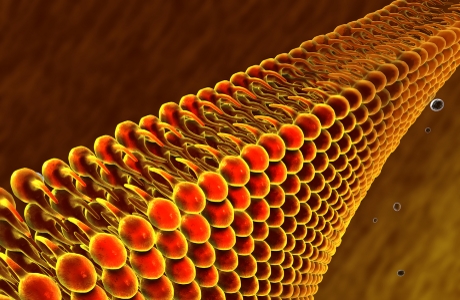 macronutrients
macronutrients
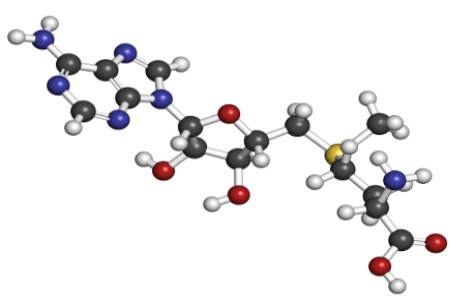 amino acids
amino acids



